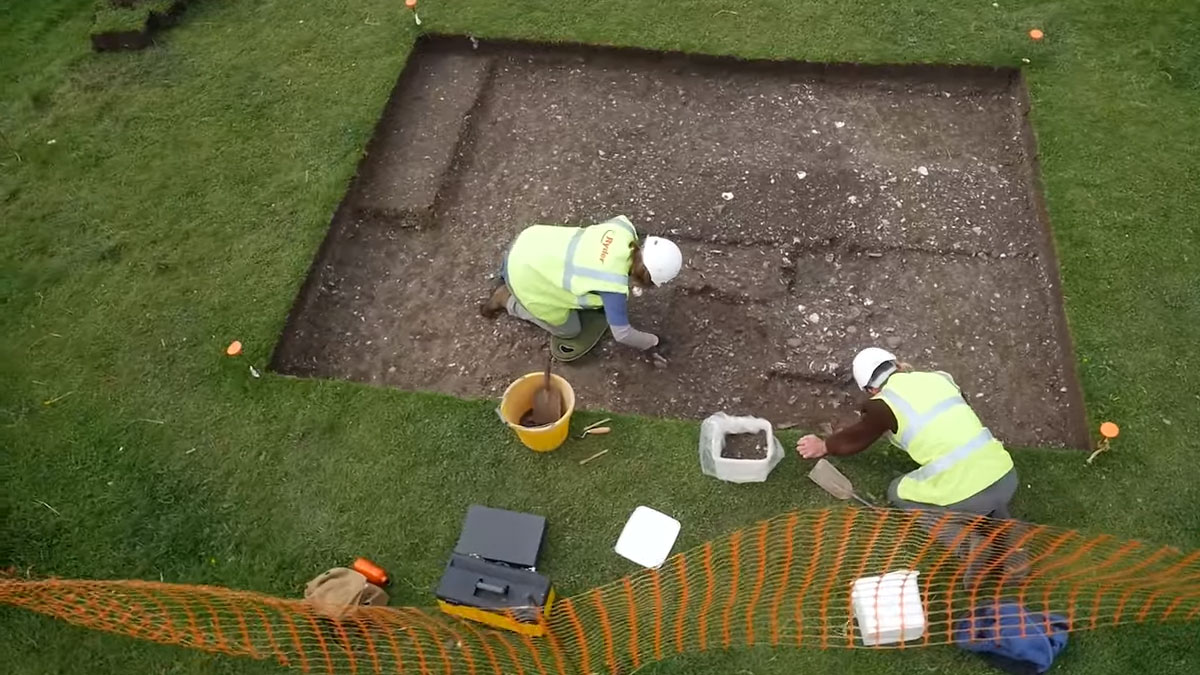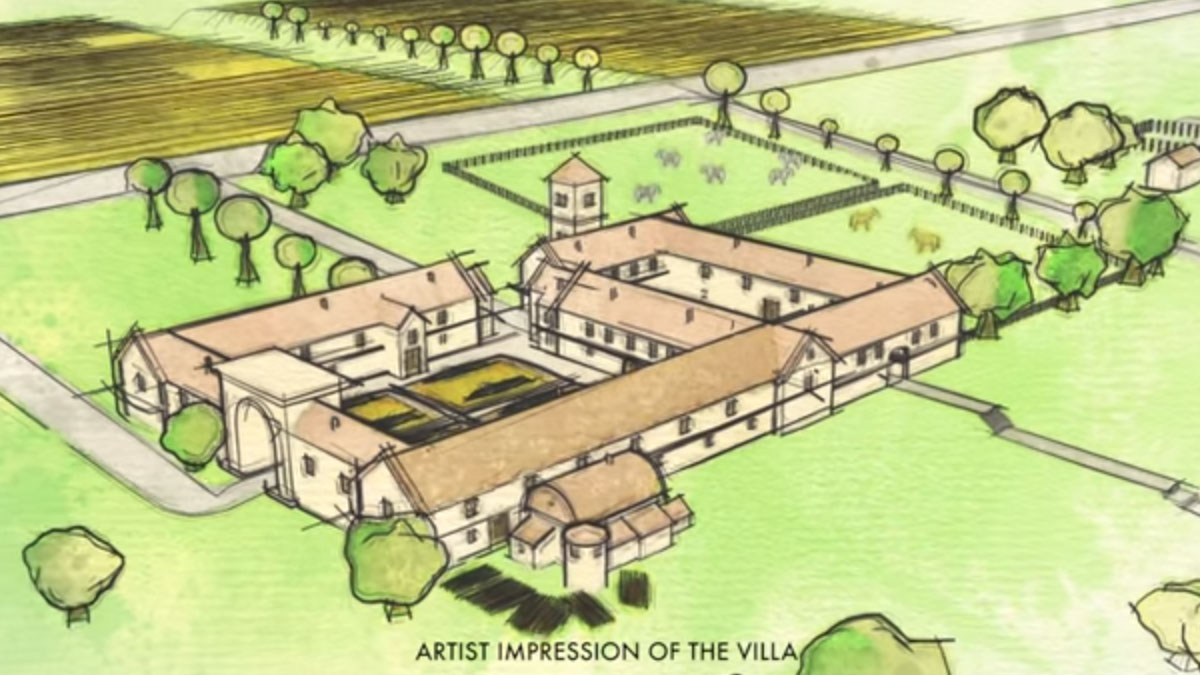Huge Roman villa found beneath Wiltshire back garden
Remains of luxury three-storey property are of 'unparalleled importance in recent years'

A free daily email with the biggest news stories of the day – and the best features from TheWeek.com
You are now subscribed
Your newsletter sign-up was successful
Builders working in a back garden in Wiltshire have stumbled across the remains of what archaeologists believe to be one of the largest Roman villas ever discovered in Britain.
The property now lies beneath the site of Luke Irwin's family home in the south Wiltshire village of Tisbury.
Workmen laying cable found what appeared to be a piece of Roman mosaic in the garden last summer.
The Week
Escape your echo chamber. Get the facts behind the news, plus analysis from multiple perspectives.

Sign up for The Week's Free Newsletters
From our morning news briefing to a weekly Good News Newsletter, get the best of The Week delivered directly to your inbox.
From our morning news briefing to a weekly Good News Newsletter, get the best of The Week delivered directly to your inbox.
Irwin contacted the Wiltshire Archaeology Service, Historic England and the Salisbury Museum to notify them of the find, little expecting the discovery that was to come.
Experts investigating the area realised it was the site of an enormous Roman villa, with more than 20 rooms on the ground floor alone.
The Roman house, known as Deverill Villa, after the house that now occupies the plot, is believed to have been three storeys high.

Built between 175AD and 220AD, it was apparently occupied for more than 200 years, with evidence of re-modelling dating from the mid-fourth century. Items found on the site include underfloor heating pipes and oyster shells, suggesting that the wealthy inhabitants enjoyed a comfortable lifestyle.
A free daily email with the biggest news stories of the day – and the best features from TheWeek.com
Historic England archaeologist Dr David Roberts told the Daily Telegraph that it was rare for excavators to find remains so undisturbed by later agricultural or industrial activity.
"This site has not been touched since its collapse 1,400 years ago and, as such, is of enormous importance. Without question, this is a hugely valuable site in terms of research, with incredible potential," he said, adding that the discovery was of "unparalleled importance in recent years".
Astoundingly, after their initial investigations, archaeologists were forced to re-bury their findings because Historic England cannot afford to fully excavate and preserve the site.
Under current financial pressures, Dr Roberts said, the public body is unable to spare the hundreds of thousands of pounds necessary for the exploration and upkeep of the site. However, experts hope to raise the funds to return to the project at a later date.
-
 Democrats push for ICE accountability
Democrats push for ICE accountabilityFeature U.S. citizens shot and violently detained by immigration agents testify at Capitol Hill hearing
-
 The price of sporting glory
The price of sporting gloryFeature The Milan-Cortina Winter Olympics kicked off this week. Will Italy regret playing host?
-
 Fulton County: A dress rehearsal for election theft?
Fulton County: A dress rehearsal for election theft?Feature Director of National Intelligence Tulsi Gabbard is Trump's de facto ‘voter fraud’ czar
-
 Twins born in separate years
Twins born in separate yearsTall Tales And other stories from the stranger side of life
-
 Home Office worker accused of spiking mistress’s drink with abortion drug
Home Office worker accused of spiking mistress’s drink with abortion drugSpeed Read Darren Burke had failed to convince his girlfriend to terminate pregnancy
-
 In hock to Moscow: exploring Germany’s woeful energy policy
In hock to Moscow: exploring Germany’s woeful energy policySpeed Read Don’t expect Berlin to wean itself off Russian gas any time soon
-
 Were Covid restrictions dropped too soon?
Were Covid restrictions dropped too soon?Speed Read ‘Living with Covid’ is already proving problematic – just look at the travel chaos this week
-
 Inclusive Britain: a new strategy for tackling racism in the UK
Inclusive Britain: a new strategy for tackling racism in the UKSpeed Read Government has revealed action plan setting out 74 steps that ministers will take
-
 Sandy Hook families vs. Remington: a small victory over the gunmakers
Sandy Hook families vs. Remington: a small victory over the gunmakersSpeed Read Last week the families settled a lawsuit for $73m against the manufacturer
-
 Farmers vs. walkers: the battle over ‘Britain’s green and pleasant land’
Farmers vs. walkers: the battle over ‘Britain’s green and pleasant land’Speed Read Updated Countryside Code tells farmers: ‘be nice, say hello, share the space’
-
 Motherhood: why are we putting it off?
Motherhood: why are we putting it off?Speed Read Stats show around 50% of women in England and Wales now don’t have children by 30